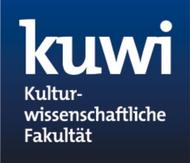Forschung
Profil und Projekte
Unsere Professur widmet sich in Lehre und Forschung vor allem solchen Fragen, die sich auf die Funktionsweise von Demokratien und anderen Herrschaftsformen richten, den kulturellen Grundlagen von Politik nachspüren und das strategische Verhalten politischer wie zivilgesellschaftlicher Akteure und dessen Wirkung auf die Gesellschaft in den Blick nehmen. Konkrete Schwerpunkte und Expertise liegen u. a. in folgenden Bereichen:
- Rechtsradikalismus in West und Ost
- Nationalismus und Populismus
- Religion und Politik in der liberalen Demokratie
- Hauptstädte und Staatsarchitektur: ihre Funktionen im politischen System
- Politikberatung
Unser vergleichender Blick richtet sich v.a. auf die Demokratien in Westeuropa und Übersee sowie auf die jungen Demokratien in Mittel- und Osteuropa.
Project
Populism and religion in transatlantic comparison
Direction
Prof. Dr. Michael Minkenberg
Funding
Internal funds
Runtime
04/2024 - 09/2025
Cooperation
C-Rex of University of Oslo, George-Washington University in Washington, D.C., and Universidad Católica in Santiago de Chile
Description
This project examines the interrelationship between religion and populism in European and North and Latin American democracies and, in particular, the extent to which religion represents a resource for populism, and especially the radical right, and can itself take on populist traits. This project aims to close two gaps in comparative research: firstly, the gap between populism research and political science research on religion, and secondly, the gap between research focused on the Americas and research focused on Europe.
The working hypothesis is that the (now increasingly researched) uptake of religious motifs by right-wing extremist and populist actors meets a (still little researched) demand in which Christian identity narratives are mixed with nativist ideology. This must be clearly distinguished from the much vaunted “return of religion” (Riesebrodt, Graf et al.) in the sense of a countermovement to secularization processes.
The broad comparative analysis of the democracies of Western Europe and North and South America will be supplemented by case analyses of selected countries with regard to the interplay between religious and political actors and the overlapping of religious and political fields.
Project
Patterns of Climate Obstruction and Populist-Citizen Alliances: Actors, Narratives, and Networks in Comparative Perspective
Direction
Dr. Anja Hennig
Funding
tba
Runtime
Preparation phase for grant proposal
Cooperation
Illiberalism Study Program at George-Washington University, USA
Description
This project examines how right-wing populist actors in different national contexts seek to capitalize on the fact that socio-ecological transformation is costly at first glance and requires political intervention in areas that affect specific sections of society, such as coal miners, farmers or owners of houses near wind farms. The working hypothesis is that right-wing populist actors form alliances with civil society protesters against climate change policies in order to win votes. Depending on the national context and the type of actors - parties, think tanks or movements - they rely more on identity narratives or on narratives related to economic inequality. The comparative analysis will show the extent to which similar narratives prevail in cases with similar opportunities for green politics.
The comparative analysis of selected democracies in Western, Southern and Eastern Europe will be complemented by case analyses of selected conflicts (e.g. around the TESLA giga factory in Brandenburg) regarding the alliances or interplay between civil and political actors.
